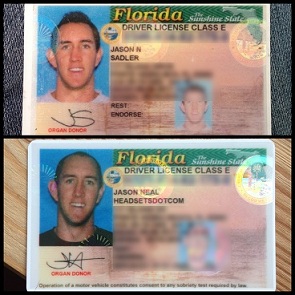
As I was researching photographers’ legal questions, I stumbled onto a question posted by an upset client: “The photographer hasn’t given me my photos. It’s been six months. What can I do about that?”
Whoa! That sounds exceptionally bad. I’m curious how complex this project was and when the photographer said they’d deliver images to the client.
I don’t know the circumstances regarding this person’s situation, but here’s what could happen if a client is unsatisfied with your work, or worse, you fail to deliver as promised.
Check the Contract’s Dispute Resolution Provision
Whenever anyone comes to me with a business dispute, like “They didn’t pay me,” or “I didn’t get what I paid for,” the first question I ask is:
What does your contract say?
Your photography contract should have a dispute resolution provision that states how disputes are going to be resolved, where it’s going to be resolved, and which state law governs the agreement.
One of the most common dispute resolution clauses I put in photography contracts says if there’s a dispute, the parties will try, in good faith, to resolve the matter within 30 days. If that doesn’t resolve the matter, then the parties agree to resolve the matter is a court located in Maricopa County, Arizona, and the agreement is governed by Arizona law. (I recommend Maricopa County and Arizona law because that’s where I’m located. You don’t want to pay for your lawyer’s travel expenses if you don’t have to.) I usually include a clause that says the losing party must pay the prevailing party’s attorneys’ fees and costs.
Regardless of what the contract states about resolving disputes, my first step in most disputes is sending a demand letter that puts the other side on notice that further legal recourse will be sought. This letter lets the other side know that the offended party is serious and willing to fight, and it gives them a chance to resolve the matter before it will be taken to the next level.
Report to the Attorney General’s Office for Consumer Fraud
You may not know this, but your state’s Attorney General’s Office may have a forum to submit a consumer complaint and report suspected fraud. Arizona has this, and it’s not a fun process to go through the subsequent investigation, which could include being subpoenaed for a deposition under oath and/or having a claim for fraud filed against you. If a court found that you committed fraud, it could have devasting consequences for your business, including your ability to be a professional photographer. Taking a client’s money and failing to provide the images could easily be an act of fraud.
If a client wanted to pursue this option, they don’t need a lawyer to file a consumer complaint. They can go online and get the form themselves. The Attorney General’s Office would foot the bill for the investigation, and likely expect to be reimbursed by you if you lose or come to a settlement. Conversely, if a consumer complaint is filed against you, you should hire a lawyer to represent you.
Bad Review
The least problematic a dissatisfied client could do is leave you a negative review on Google, Yelp, or Facebook, or they could post about you online on their social media accounts or their website. As long as everything they post about you is true or their opinion, it’s perfectly legal.
Hopefully, you never find yourself in this type of situation, but if it happens, please don’t ghost your client. Keep the lines of communication open as you work towards a resolution. One of the most common complaints I hear from customers is that the person they hired stopped responding to emails, calls, or texts, and so they felt like they had no choice but to ask a lawyer or the state for help.
Lights Camera LawsuitTM
There’s always a need for quality legal information for photographers. That’s why I created an online course called Lights Camera Lawsuit: The Legal Side of Professional Photography to address photographers’ most important questions. I want you to feel secure in your business, confident in the way you operate day-to-day, knowing that you’ve set yourself up to get paid what your worth without incident.
At $497, the course contains nearly six hours of legal information you can immediately apply to your business. That’s less than what I charge for two hours of legal work for clients!
Please subscribe for more information and to make sure you don’t miss out on any special offers or discounts.









